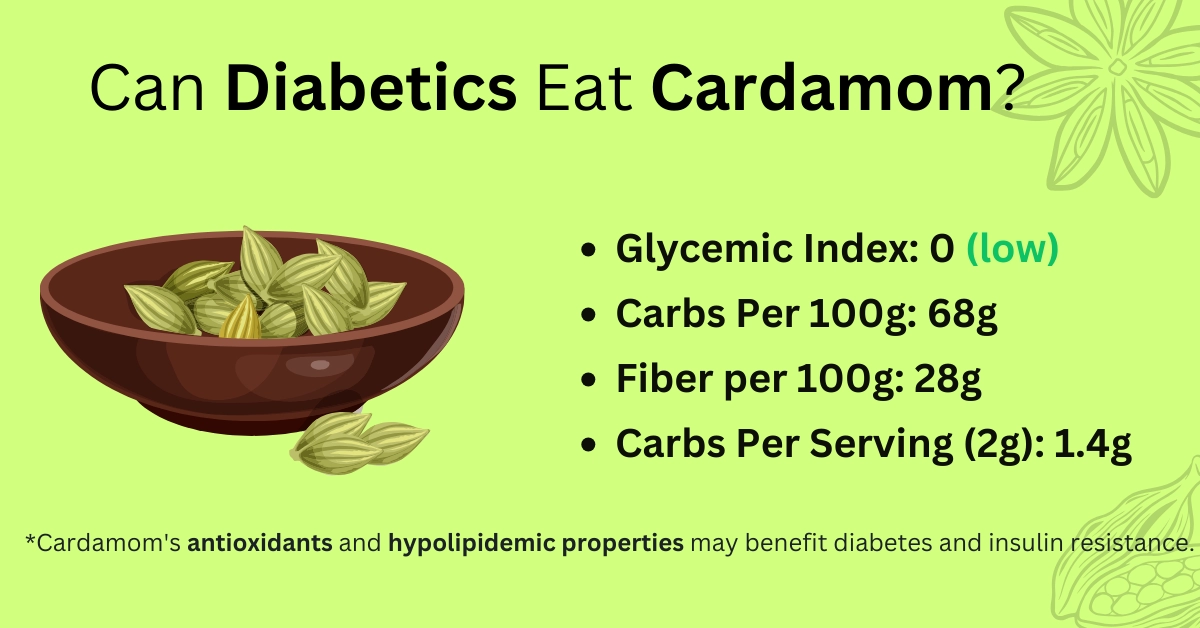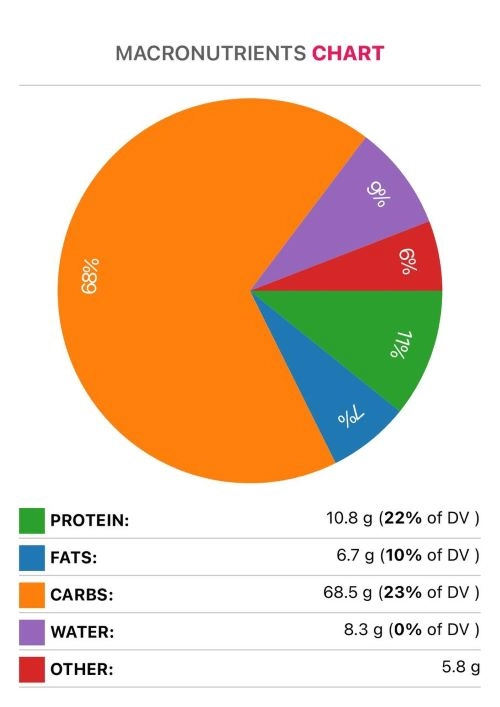Cardamom and Diabetes - Is It Good For Diabetics

Introduction
Cardamom comes in two varieties: black and green. Both are suitable for managing diabetes. Let's explore cardamom's benefits in more detail.
Glycemic Index and Carbohydrates
The total amount of carbohydrates you consume affects your blood sugar levels after eating, so it is critical to consume carbs in moderation. In general, low GI and carbohydrate diets benefit blood glucose control.
The glycemic index of cardamom is considered 0.
Cardamom is high in carbs: 68.5g per 100g; however, 28g of these carbs is fiber. Cardamom falls in the range of 7% of foods as a source of fiber.
This means cardamom consumption can't raise blood sugar levels; moreover, it can help lower glucose levels in the blood.
Visit our Glycemic index chart page for glycemic index values of more than 350 foods.

Type-2 Diabetes
Cardamom contains phytochemicals that have anti-inflammatory and antibacterial properties. These antioxidants can improve glucose transport into cells, promote eye health, and prevent diabetic neuropathic complications (1).
Research shows that cardamom supplements may reduce inflammation in chronic diseases like diabetes and cancer. Furthermore, one study discovered that cardamom increased antioxidant status by 90% (2).
In an 8-week study of 80 people with prediabetes, taking 3 grams of cardamom daily significantly reduced inflammatory markers such as hs-CRP, IL-6, and MDA compared to placebo (3).
Based on the above, cardamom's antioxidant, anti-inflammatory, and hypolipidemic activities might improve diabetes and reduce insulin resistance.
Moreover, cardamom is high in calcium and magnesium, essential minerals for dilating blood vessels and maintaining healthy blood pressure levels.
One study indicated that suppressing α-amylase and α-glucosidase enzyme cardamom supplementation has anti-diabetic effects and may regulate glucose metabolism. It can also help lower blood pressure, a significant risk factor for heart disease (4).
Cardamom contains a good amount of fiber, which can also benefit people with diabetes since fiber slows digestion. High-fiber foods make people feel fuller for extended periods, which can aid in the prevention of overeating (5).
In summary, cardamom has many benefits for people with diabetes due to its high fiber, antioxidants, and mineral content.
However, try to consume it in moderation, as it is also high in carbs.
